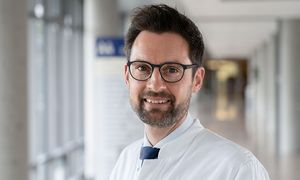Welcome to the Department of Translational Science
In patients with heart failure, defects in excitation-contraction (EC) coupling (i.e., cardiac myocyte calcium handling and the ensuing activation of the myofilaments to induce contraction and relaxation), oxidative stress and an energetic deficit are important underlying mechanisms of the disease. While these processes can be analysed separately, they are yet tightly interdependent, and therefore we address these pathologies with integrative mechanistic and experimental approaches.
Mitochondrial energetics
A strong focus of our work lies on the interplay between EC coupling and mitochondrial energetics. In this context, the generation of reactive oxygen species (ROS) in mitochondria and its regulation through ion handling and the mitochondrial redox state are of particular importance, since ROS may play a causal role for contractile dysfunction, arrhythmias, cell death and cardiac remodelling during heart failure. We have identified several mechanisms how pathological changes in EC coupling cause oxidative stress from mitochondria that contribute to heart failure development. Furthermore, we investigate novel therapeutic concepts that target mitochondria and/or EC coupling and therefore, go beyond the current therapeutic concept of antagonising the neuroendocrine activation in patients with heart failure.
Experimental techniques
To address these topics, we employ a broad range of experimental techniques that cover the analysis of physiological and pathological processes on a subcellular (i.e., organelle), cellular, organ-wide and systemic (in vivo) level. We have a special expertise in analysing isolated cardiac myocytes using fluorescence microscopy combined with either electrical field stimulation, the patch-clamp technique or the application of force measurements in single cardiac myocytes. These approaches are important since the regulation of mitochondrial function needs to be analysed when mitochondria are embedded in their natural environment of the cell (maintaining important microdomains of regulatory factors, such as calcium and ADP) and the cells are exposed to physiological or pathological levels of workload. Furthermore, we also analyse isolated mitochondria to determine respiration, redox state and ROS formation. By combining these techniques with genetically modified animal models, we expand our concepts to the whole organ and in vivo level to understand the systemic relevance of our findings.
Core Facilities
Our experimental platforms are organised as Core Facilities for Cellular Electrophysiology (Head: Michael Kohlhaas, PhD) and Mitochondrial Energetics (Head: Alexander Nickel, PhD). The Junior Research Group led by Jan Dudek, PhD has a strong expertise on mitochondrial protein biochemistry and mitochondrial forms of heart failure and thereby contemplates our mitochondrial focus and scientific profile.




